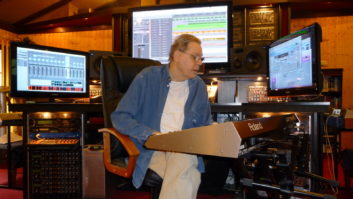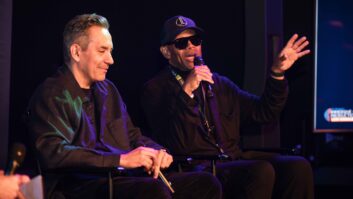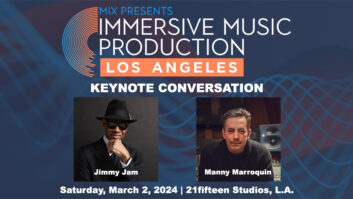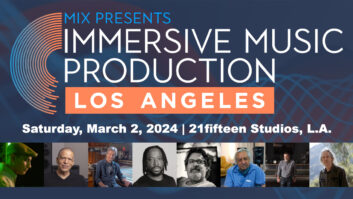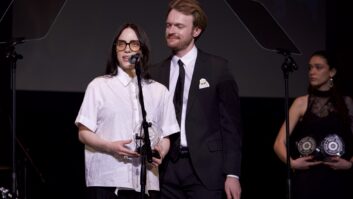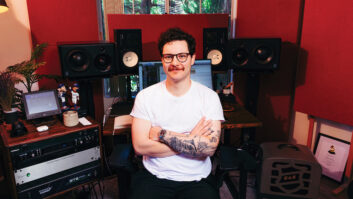For many, Memphis’ Ardent Studios is revered as the cradle of soul music, with a discography that is both awe-inspiring and boundless in its influence. From Big Star to the Staples Singers to Sam and Dave, Ardent is sacred ground to music lovers around the world.
Recently, Zeshan B—a first-generation Indian-American Muslim and Chicago native—sojourned at Ardent to create his own masterpiece: Vetted. Combining southern soul with Indo-Pakistani flavors, the album blends all of Zeshan B’s diverse influences, shedding his own light on 11 ‘lesser known soul gems.’ The result is an inspiring and truly galvanizing piece of work that sees him standing proudly on the shoulders of the soul giants who preceded him. Pro Sound News chatted with Zeshan about music as the great unifier.
ON SOUL CONNECTION:
We went old school in the production of this album. I have been listening to soul music my whole life and always wanted to record some lesser-known soul gems. I had been performing some of them live, with an Indo-Pakistani-style twist. I also grew up listening to Indian/Pakistani music, especially stuff from the late ’60s and early ’70s; these records were the soundtrack to my childhood. My label, Minty Fresh, reached out to Ardent Studios in Memphis, and they were really excited. I was put on to Lester Snell, one of the legendary arrangers and musicians for Isaac Hayes and Al Greene. Through him, we had access to the ‘Memphis wrecking crew’ of cats that played on all these records: Steve Potts, Michael Toles and so many other luminaries from that time.
ON PRICELESS VIBE:
The vibe of the studio has everything to do with how a record turns out. You walk into Ardent and there is this history all over the place, along with beautiful rooms and really old consoles. You walk down the halls and you see The Bar-Kays, Don Bryant, Jody Stephens of Big Star and other people coming in and out to check out what is going on. And at Ardent, it’s not everyday that some Indo-Pakistani kid from Chicago comes in and says he wants to record a bunch of soul tunes. The way things are nowadays however, many artists are trying to cut costs and record stuff in the box, but I had support from the Indian/Pakistani community to record this album and some very generous people helped me out.
ON STEPPING UP:
Recording at Ardent was about being daunted and inspired at the same time. It is kind of like if you want to get better at playing basketball, you play with your older brother who is taller than you and better than you. By doing that, you are going to rise up and step up to your game. So it was very daunting having someone like Lester Snell produce your record; he has played on every hit on the Stax catalog, and is on a first-name basis with all these other Memphis legends. It was all a very collegial atmosphere, though; there is that southern hospitality, humility and a great spirituality throughout Memphis. All the musicians have a church gig on Sundays, even the big musicians. Look at Al Greene, who became a reverend. I think that spirituality has everything to do with how they play—it is not about proficiency.
ON INDO-PAKISTANI PARALLELS:
If you listen to what I grew up listening to, Indo-Pakistanis have their own version of soul music, particularly the music of Pakistan, because it is not as commercialized. That music is heavily based in poetry, and I would say 98 percent of the music is very sad, covering topics like misery, unrequited love, loneliness and poverty. These are all things that are present in soul music and what my mom and dad listened to while I was growing up. My father came from abject poverty and most people in India and Pakistan live in poverty. I always gravitate towards soul music because there is a rawness and reality to it all.
ON UNIFICATION THROUGH MUSIC:
Fundamentally, music as an art form—just like film or visual art—has a visceral effect on human beings. It is not something that is contrived and it is part of the human experience at a very elemental level. I’ve always said that words have a certain banality to them, but music is what stirs people’s souls and is what galvanizes everything. In the civil rights movement, the music of Curtis Mayfield and Mahalia Jackson really helped propel their message and galvanize people. These are very challenging times for all Muslims in America, but it is also an awesome opportunity for us to make things right and solidify bonds with communities. As a musician, I am proud that I am doing this on a daily basis.
ON KEEPING IT NATURAL:
I said to Lester, “I want it to sound authentic and not over-produced. How can we do that?” Lester was all too obliging to answer and ended up taking a minimalistic approach with the number of microphones we used and overdubs we made. He also had to put me in check many times: For example, if I sang out of tune and complained about it, he would say ‘It didn’t sound out of tune, it sounded natural!’ When I asked to do a take again, he said: “Let me tell you something. You don’t know how many records I’ve recorded where the bass player gets lost in the middle of a tune, or the lead singer is singing flat whole steps, or the background singers don’t know what is going on. Nobody cares. If it has the groove and sounds natural, it can sell 10 million records.” On the flip side, he said records can be ‘too perfect’ and therefore not authentic. He was the anchoring factor in the production.
Jacques Sonyieux is a devout explorer of recording studios and the artists that occasionally inhabit them. Please send any tips or feedback to Jacques at: [email protected].
